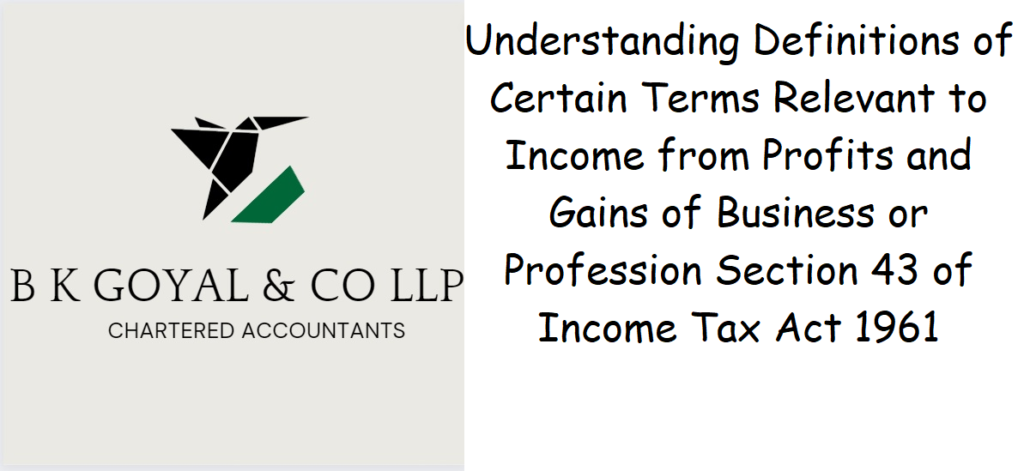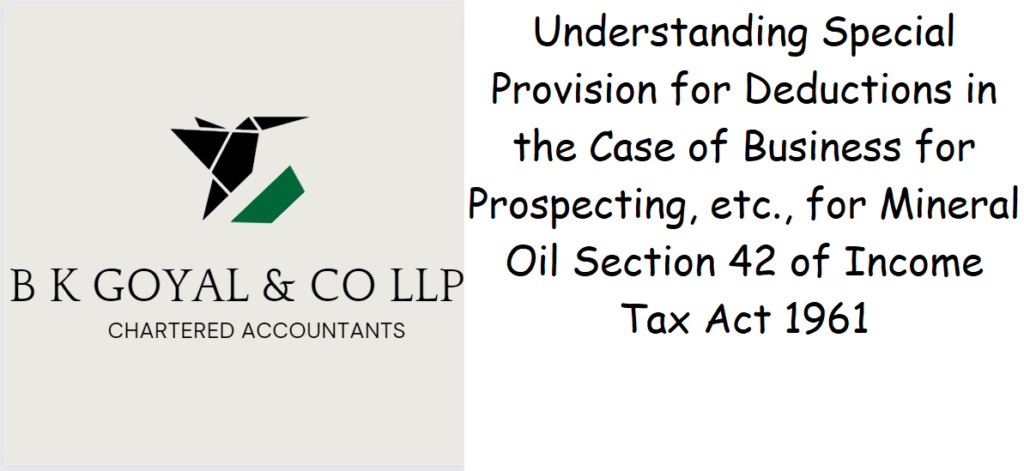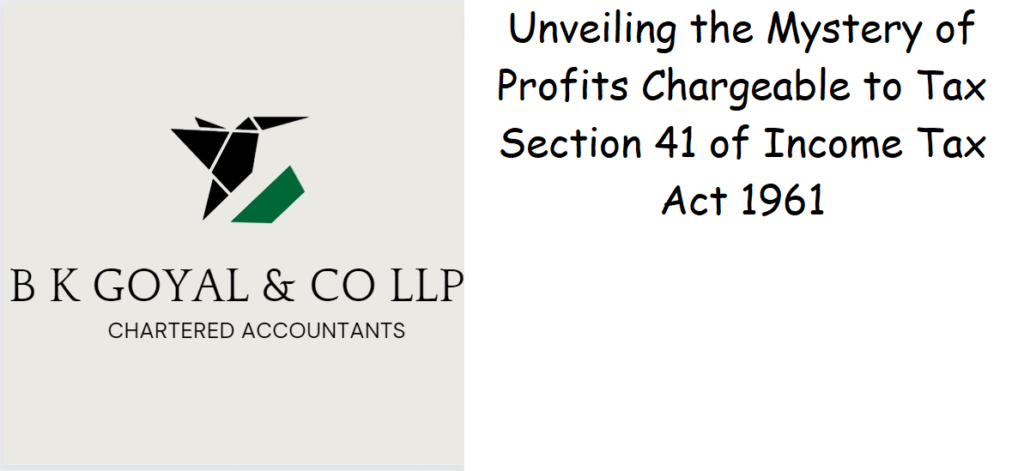Section 43B of Income Tax Act 1961: Certain deductions to be only on actual payment
Introduction Are you looking to understand about Section 43B of Income Tax Act 1961: Certain deductions to be only on actual payment ? This detailed article will tell you all about Section 43B of Income Tax Act 1961: Certain deductions to be only on actual payment. Hi, my name is Shruti Goyal, I have been working in the field of Income Tax since 2011. I have a vast experience of filing income tax returns, accounting, tax advisory, tax consultancy, income tax provisions and tax planning. The Indian Income Tax Act 1961 provides a comprehensive framework for taxation in India. It covers various aspects of taxation, including income tax, corporate tax, and wealth tax. One of the crucial sections of this act is Section 43B, which lays down the conditions under which certain deductions can be claimed. In this blog, we will discuss the provisions of Section 43B of the Income Tax Act 1961, which pertains to certain deductions that can be claimed only on actual payment. Understanding Section 43B Section 43B of the Income Tax Act 1961 lays down certain conditions for claiming deductions under various sections of the act. The section specifies that certain deductions can be claimed only on actual payment, regardless of whether the payment is made before or after the due date of filing the return. Let us understand this with an example. Suppose you are running a business, and you have incurred expenses on rent, salaries, and other payments. You can claim deductions for these expenses under various sections of the Income Tax Act. However, as per Section 43B, you can claim these deductions only when you have made the actual payment. Certain deductions to be only on actual payment section 43B of Income Tax Act 1961 Section 43B covers the following deductions that can be claimed only on actual payment: 1. Payment of employee contributions to welfare funds As per Section 43B, any payment made by an employer to an employee welfare fund can be claimed as a deduction only if it is actually paid on or before the due date of filing the return. 2. Payment of taxes, duties, cess, or fees Any taxes, duties, cess, or fees that are payable under any law can be claimed as a deduction only if they are actually paid on or before the due date of filing the return. 3. Payment of bonus or commission to employees Any payment made by an employer to an employee as a bonus or commission can be claimed as a deduction only if it is actually paid before the due date of filing the return. 4. Payment of interest on loans or advances Any interest paid on loans or advances taken for business purposes can be claimed as a deduction only if it is actually paid before the due date of filing the return. 5. Provision for gratuity or leave encashment Any provision made for gratuity or leave encashment can be claimed as a deduction only if it is actually paid before the due date of filing the return. Impact of Section 43B on taxpayers Section 43B has a significant impact on taxpayers, especially businesses. As per the section, any deduction claimed for expenses incurred can be allowed only if the actual payment is made before the due date of filing the return. This means that businesses need to ensure that they make all the necessary payments before the due date of filing the return to claim the deductions. Failure to do so may result in the disallowance of deductions and the imposition of penalties. FAQs What is Section 43B of the Income Tax Act 1961? Section 43B of the Income Tax Act 1961 lays down the conditions under which certain deductions can be claimed only on actual payment. What deductions are covered under Section 43B? Section 43B covers deductions for employee contributions to welfare funds, payment of taxes, duties, cess, or fees, payment of bonus or commission to employees, payment of interest on loans or advances, and provision for gratuity or leave encashment. Can deductions be claimed even if the payment is made after the due date of filing the return? No, as per Section 43B, deductions can be claimed only if the actual payment is made on or before the due date of filing the return. What is the impact of Section 43B on businesses? Section 43B has a significant impact on businesses, as it requires them to ensure that they make all the necessary payments before the due date of filing the return to claim the deductions. Failure to do so may result in the disallowance of deductions and the imposition of penalties. Conclusion Section 43B of the Income Tax Act 1961 is an essential provision that lays down the conditions under which certain deductions can be claimed only on actual payment. Taxpayers, especially businesses, need to be aware of this provision and ensure that they make all the necessary payments before the due date of filing the return to claim the deductions. Failure to do so may result in the disallowance of deductions and the imposition of penalties. Therefore, it is advisable to consult a tax professional to understand the provisions of Section 43B and comply with them to avoid any adverse consequences. Section 43B, of Income Tax Act, 1961 Section 43B, of Income Tax Act, 1961 states that Notwithstanding anything contained in any other provision of this Act, a deduction otherwise allowable under this Act in respect of— (a) any sum payable by the assessee by way of tax, duty, cess or fee, by whatever name called, under any law for the time being in force, or (b) any sum payable by the assessee as an employer by way of contribution to any provident fund or superannuation fund or gratuity fund or any other fund for the welfare of employees, or (c) any sum referred to in clause (ii) of sub-section (1) of section 36, or (d) any sum payable by the assessee as interest
Section 43B of Income Tax Act 1961: Certain deductions to be only on actual payment Read More »





